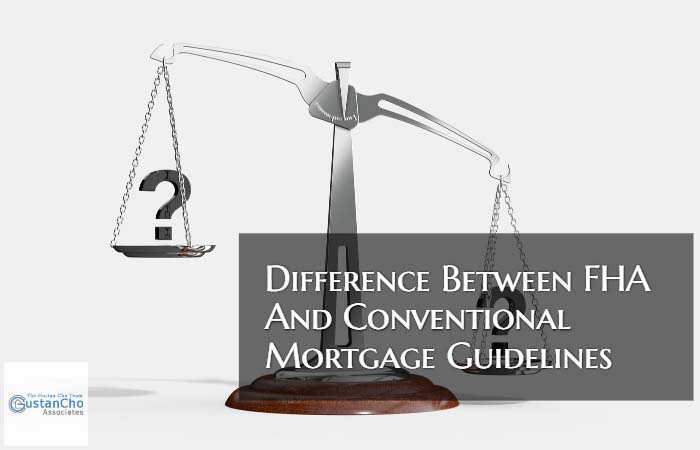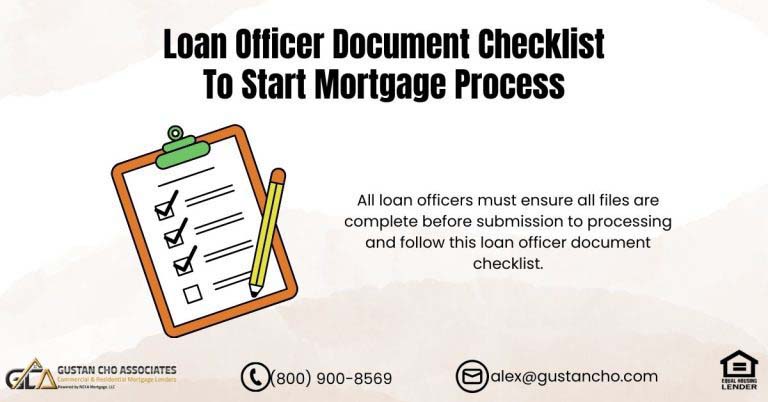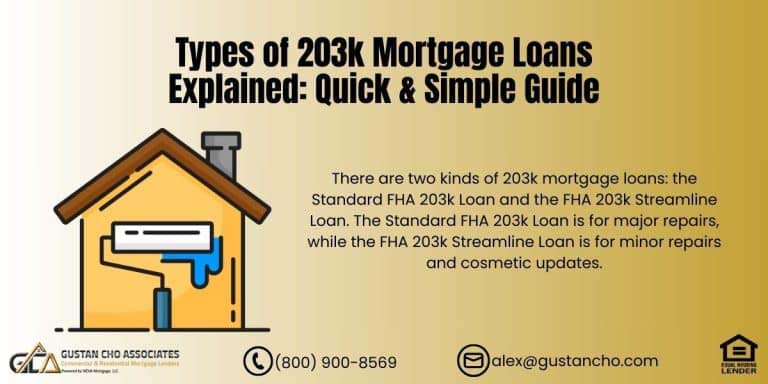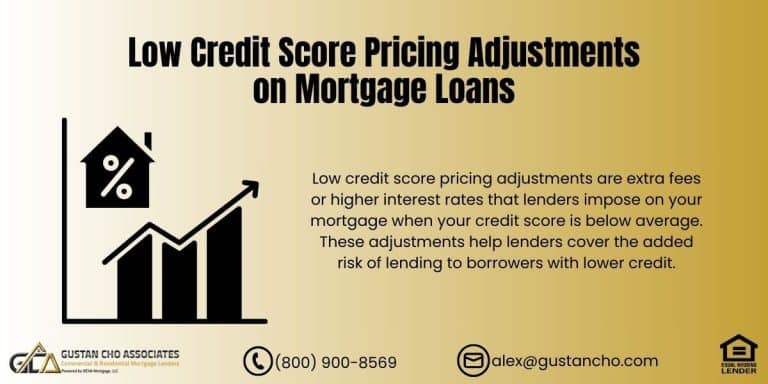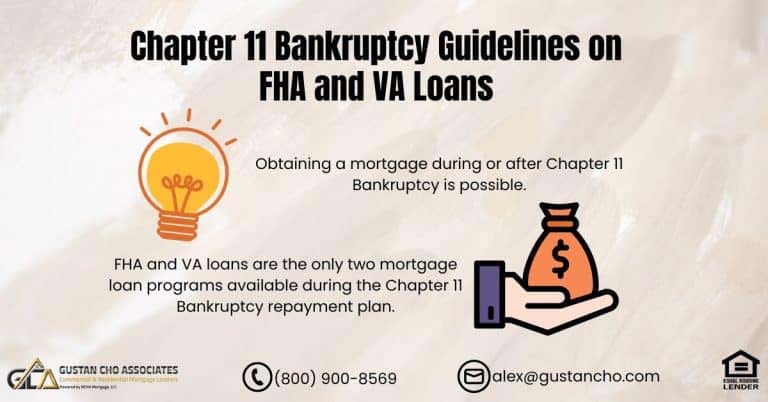This guide covers the difference between FHA and Conventional mortgage guidelines. Many homebuyers, especially first-time buyers shopping for homes often wonder the difference between FHA and Conventional mortgage guidelines. They often do not understand the main difference between FHA and Conventional mortgage guidelines and which loan program is best for them.
There are big differences between FHA and Conventional mortgage guidelines. Some home buyers may qualify for an FHA and not Conventional loans.
On the flip side, others may qualify for a Conventional Loans but not FHA loans. Many folks believe that FHA loans are for poor credit borrowers and that Conventional loans are for prime credit borrowers. This is absolutely not the case. I will explain in this blog why sometimes FHA loans are better and other times Conventional loans is the only route to take. In this article, we will discuss and cover difference between FHA and Conventional mortgage guidelines.
What Are FHA Loans
FHA loans is the most popular residential mortgage loan program in the United States today. FHA stands for the Federal Housing Administration. FHA is a subsidiary of the United States Department of Housing and Urban Development, which is known by many as HUD. FHA is not a mortgage company. HUD acts as the mortgage insurance agency for FHA loans.
HUD, the parent of the Federal Housing Adminstration does not originate, process, underwrite, fund, or service any residential mortgage loans.
The function of the Federal Housing Administration is to insure mortgage loans that are originated and funded by private banks and mortgage companies that are FHA approved mortgage lenders. FHA approved lenders need to follow HUD lending guidelines in order for the FHA Loans they originate and fund to be insurable by FHA. HUD insures FHA Loans in the event borrowers defaults on their FHA Loan to mortgage lenders.
Mortgage Rates on FHA Home Loans
FHA Loans have lower interest rates than conventional loans: Reason of lower rates is because HUD guarantees the FHA Loan in the event of borrower’s default. However, FHA does have both an upfront mortgage insurance premium as well as an annual mortgage insurance premium. The FHA mortgage insurance premium goes to a pool. This federal pool is used to fund bad FHA Loans Minimum down payment required for FHA Loans is 3.5%. Minimum credit scores required to qualify for an FHA Loan is 580 if the home buyer has a 3.5% down payment. Borrowers can qualify for FHA Loans with credit scores under 580. However, FHA requires a 10% down payment on a home purchase for borrowers with credit scores under 580.
Click Here To qualify for FHA Home Loans
DTI Mortgage Guidelines
Maximum debt to income ratios allowed on FHA loans is 56.9% back end debt to income ratios and 46.9% DTI to get an approve/eligible per automated underwriting system approval. However, at least 620 credit scores are required. Borrowers with credit scores of under 620 maximum debt to income ratios allowed are capped at 43% debt to income ratios to get AUS Approval. FHA loans is for owner occupant properties only. Second-home financing and investment home financing do not qualify. Borrowers can qualify to purchase one to four-unit owner occupant properties with FHA loans. Buyers can purchase a condominium with FHA loans. However, the condo complex needs to be FHA condo approved.
Conforming Mortgage Guidelines
Conventional loans have stricter lending guidelines than FHA loans. Conventional Loans are called conforming loans . This is because they need to conform to Fannie Mae or Freddie Mac Lending guidelines. Fannie Mae and Freddie Mac are the two government-sponsored mortgage giants that set conventional lending guidelines. The Federal Housing Finance Agency is the federal regulatory agency that governs Fannie Mae and Freddie Mac. To qualify for a conventional loan, minimum credit scores required is 620 versus FHA’s 580 requirements. Maximum debt-to- income ratios on conventional loans is 50% unlike FHA’s 56.9% maximum back-end debt-to-income ratio caps.
Benefits of Conventional Loans
Conventional loans are available for one to four-unit owner occupant properties, second homes, and investment homes: Minimum down payment required for conventional loans is 3% for first time home buyers or home buyers who did not own a home for at least three years or 5% for seasoned home buyers. Private mortgage insurance is not required if you have at least 20% down payment. Conventional Loans on second home financing require a 10% down payment and 15% down payment is required on investment home financing.
Conforming Waiting Period on Mortgage Included In Bankruptcy
Difference Between FHA and Conventional Mortgage Guidelines vary widely on waiting periods on borrowers who had a prior mortgage included in bankruptcy. With Fannie Mae and Freddie Mac Mortgage Guidelines, here is how it works: There is a four year waiting period after Bankruptcy to qualify for conforming loans.
If there was a mortgage included in a bankruptcy, there is a four-year waiting period to qualify for conventional loans from the discharged date. The housing event needs to be finalized after the discharged date of the bankruptcy.
The date of the finalized foreclosure, deed in lieu of foreclosure, a short sale does not matter. Fannie Mae and Freddie Mac is only concerned with the four-year waiting period after the bankruptcy discharged date and not the housing event date. The borrower cannot reaffirm the mortgage after the discharged date of the bankruptcy. The same mortgage guidelines apply to VA Home loans and USDA loans as Conforming loans when it comes to Waiting Period on Mortgage Included In Bankruptcy. Qualify for VA and USDA loans, click here
HUD Waiting Period Guidelines on Mortgage Included In Bankruptcy
To qualify for FHA loans if the borrower had mortgage included in the bankruptcy, here are the guidelines: There is a two year waiting period after Chapter 7 Bankruptcy discharged date to qualify for FHA loans. There is a three year waiting period from the recorded date of the housing event. The three-year waiting period after the foreclosure, deed-in-lieu of foreclosure, short sale starts from the recorded date of the foreclosure or deed-in-lieu of foreclosure or date of a short sale. The discharged date of the bankruptcy does not matter because the housing event date is always later than the bankruptcy discharged date.
Difference Between FHA and Conventional Mortgage Guidelines on Student Loans
There are many instances where home buyers need to go with conventional versus FHA loans. This holds true for borrowers with high student loan balances. Fannie Mae and Freddie Mac allow Income-Based Repayment. IBR is when the student loan provider sets a monthly payment amount based on the borrower’s income. Homebuyers who have student loan balances of more than $100,000 can have IBR payments of less than $100 per month. With conventional loans, the monthly IBR payment can be used as long as the borrowers IBR payment reflects on their credit report
IBR is allowed on conventional, VA, and USDA Mortgages and FHA loans. With HUD Guidelines On Student Loans, deferred student loans are no longer exempt even though it is deferred for longer than 12 months.
HUD requires 0.50% of the outstanding student loan balance be used as a monthly hypothetical debt. Or the second option is contacting the student loan provider and tell them you are applying for a mortgage. Tell them that your lender wants me to get a monthly fully amortized monthly payment over an extended term. The extended term is normally 25 years. This figure may turn out to be under 0.50% of the student loan balance. This figure needs to be in writing from the student loan provider. The hypothetical figure can be used in lieu of the 0.50% figure if the monthly payment number is lower.
Difference Between FHA And Conventional Mortgage On Two To Four Unit Multi-Family Properties
FHA Loans require a 3.5% down payment on one to four-unit properties. However, with conventional loans, 15% down payment is required on two to four-unit properties, even though it is owner-occupied. Homebuyers can qualify for one to four-unit multi-family owner occupant properties with VA Loans with 100% financing. If you are a home buyer that needs an FHA Lender or Conventional Lender with no lender overlays, please contact us at Gustan Cho Associates at 800-900-8569 or text us for a faster response. Or email us at gcho@gustancho.com. We are available 7 days a week including evenings, holidays, and weekends.


